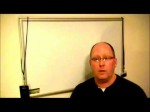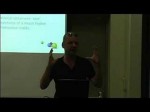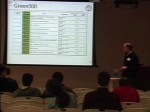November 27, 2012

Talk Fusion Reps Face Critical Issues with Generating Leads magneticmarketingauthority.com Talk Fusion is a company based in Brandon, Florida, who sells video email and video conferencing products. This company began in the US in 2007 and is now operating in over 85 countries worldwide. As of this November 2012, Talk Fusion has become so popular that it has surpassed industry brand names like AOL and Yahoo, in terms of customers and services sold. It is now rated as the 8th largest online video content provider in the world. This great accomplishment has Talk Fusion overflowing with success. But with Talk Fusion or any MLM Company for that matter you will run into the same problem all marketers face with their businesses. And that is how to generate leads for their Talk Fusion business. Old school methods just aren’t that effective and are way too time consuming. If you aren’t leveraging the internet to maximize your efforts then you are not going to build your MLM home business very effectively. No matter which Network Marketing Company you are with you need to master a marketing strategy that will show you how to generate leads online. You will need to master the art of lead generation to build your Talk Fusion Business effectively and fast. Fortunately I have found the solution to ALL problems Networkers face every day. But mainly the solution to building your Talk Fusion Business by generating leads online on auto pilot. My team, myself and my friends and my …
Tags: diy, florida, friends, fusion-business, internet, master-the-art, network, talk, yahoo
Posted in Internet Network Problem | No Comments »
September 18, 2012

This is a quick review of the new MagicJack Plus which allows inexpensive VOIP calls over the internet without a computer. Note that I am in no way associated with MagicJack or any of it’s related companies. Note that the problem I mention about making outgoing calls has been fixed, and it works great. I currently use it with a V-Tech DECT phone system.
Tags: been-fixed, currently-use, internet, magicjack, problem, talk, telo, voip
Posted in Slow Working Computer | No Comments »
September 16, 2012

Google Tech Talks December, 6 2007 ABSTRACT This tech talk series explores the enormous opportunities afforded by the emerging field of quantum computing. The exploitation of quantum phenomena not only offers tremendous speed-ups for important algorithms but may also prove key to achieving genuine synthetic intelligence. We argue that understanding higher brain function requires references to quantum mechanics as well. These talks look at the topic of quantum computing from mathematical, engineering and neurobiological perspectives, and we attempt to present the material so that the base concepts can be understood by listeners with no background in quantum physics. This first talk of the series introduces the basic concepts of quantum computing. We start by looking at the difference in describing a classical and a quantum mechanical system. The talk discusses the Turing machine in quantum mechanical terms and introduces the notion of a qubit. We study the gate model of quantum computing and look at the famous quantum algorithms of Deutsch, Grover and Shor. Finally we talk about decoherence and how it destroys superposition states which is the main obstacle to building large scale quantum computers. We clarify widely held misconceptions about decoherence and explain that environmental interaction tends to choose a basis in state space in which the system decoheres while leaving coherences in other coordinate systems intact. Speaker: Hartmut Neven
Tags: education, emerging, engedu, fix it, googletechtalks, series-explores, talk, talks, tech, techtalks
Posted in Slow Working Computer | No Comments »
October 22, 2011

Google Tech Talks January, 25 2008 ABSTRACT In this talk we examine how high performance computing has changed over the last 10-year and look toward the future in terms of trends. These changes have had and will continue to have a major impact on our software. A new generation of software libraries and algorithms are needed for the effective and reliable use of (wide area) dynamic, distributed and parallel environments. Some of the software and algorithm challenges have already been encountered, such as management of communication and memory hierarchies through a combination of compile–time and run–time techniques, but the increased scale of computation, depth of memory hierarchies, range of latencies, and increased run–time environment variability will make these problems much harder. We will focus on the redesign of software to fit multicore architectures. Speaker: Jack Dongarra University of Tennessee Oak Ridge National Laboratory University of Manchester Jack Dongarra received a Bachelor of Science in Mathematics from Chicago State University in 1972 and a Master of Science in Computer Science from the Illinois Institute of Technology in 1973. He received his Ph.D. in Applied Mathematics from the University of New Mexico in 1980. He worked at the Argonne National Laboratory until 1989, becoming a senior scientist. He now holds an appointment as University Distinguished Professor of Computer Science in the Electrical Engineering and Computer Science Department at …
Tags: argonne, bachelor, chicago, chicago-state, computer-science, electrical, engedu, functioning abnormally, googletechtalks, illinois, laboratory, professor, science, talk, university
Posted in Software Functioning Abnormally | No Comments »






